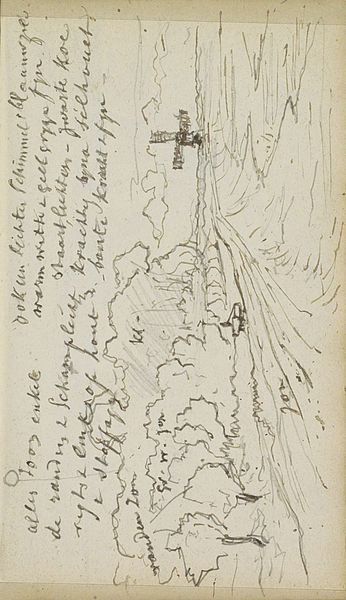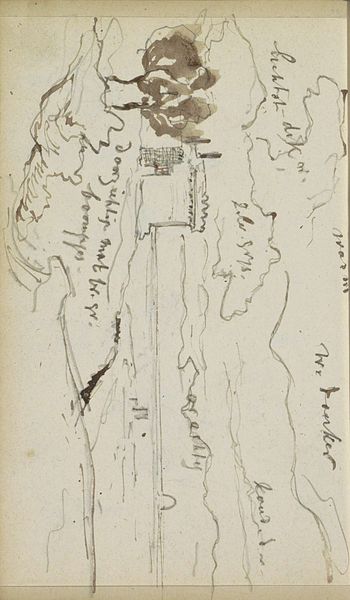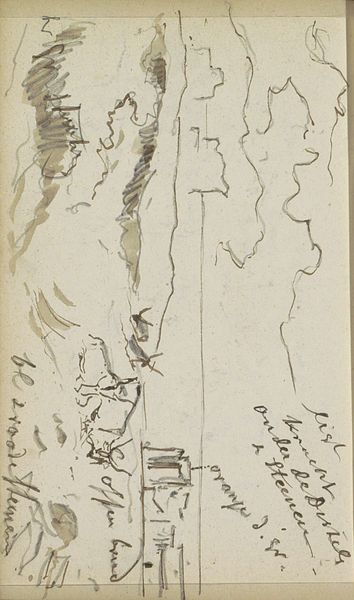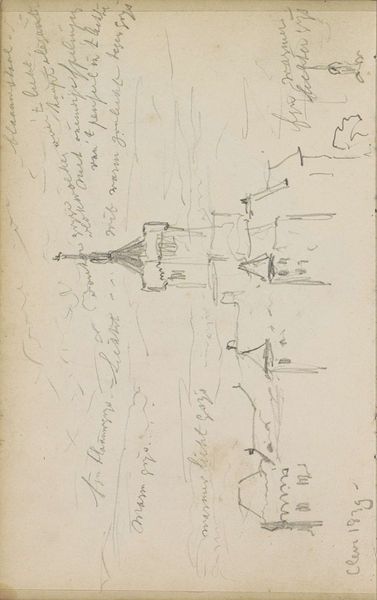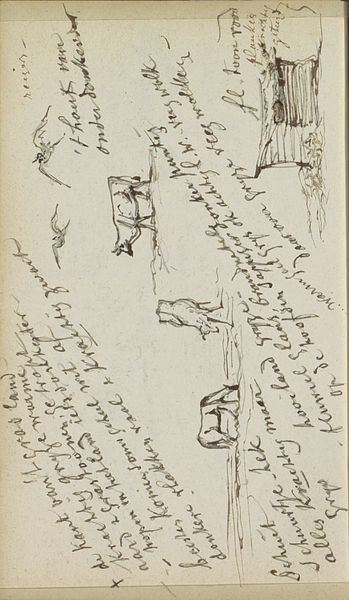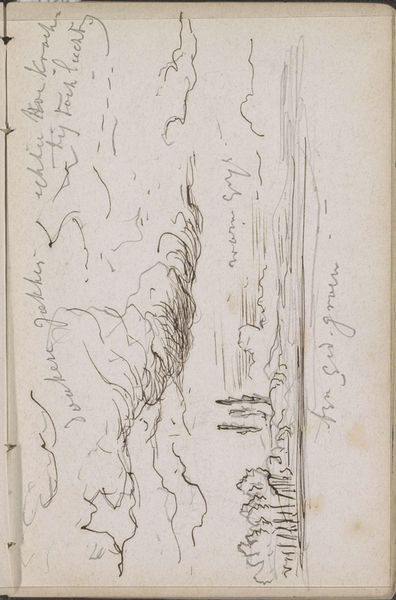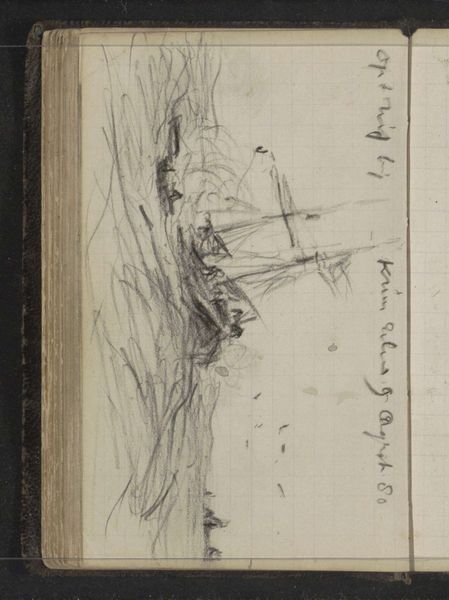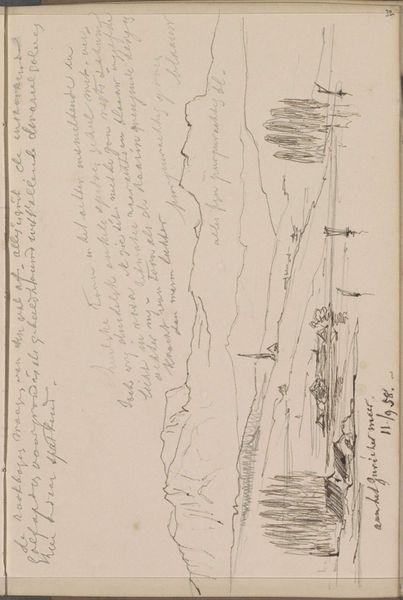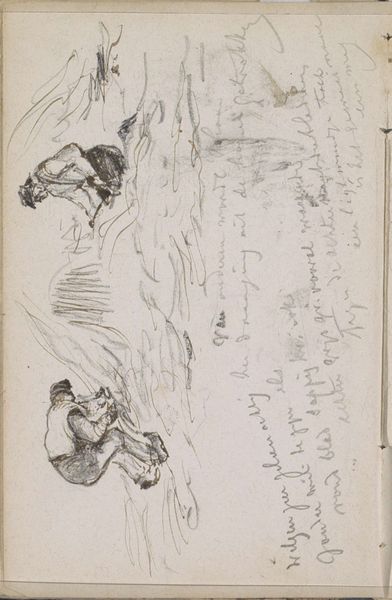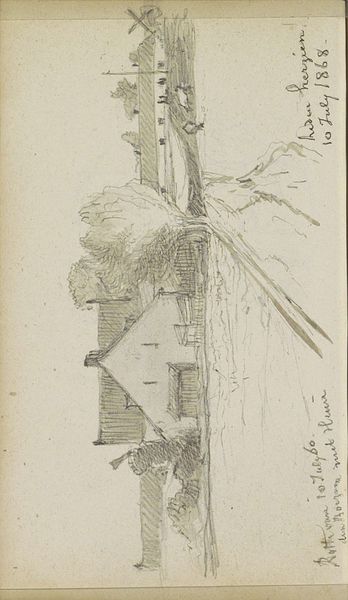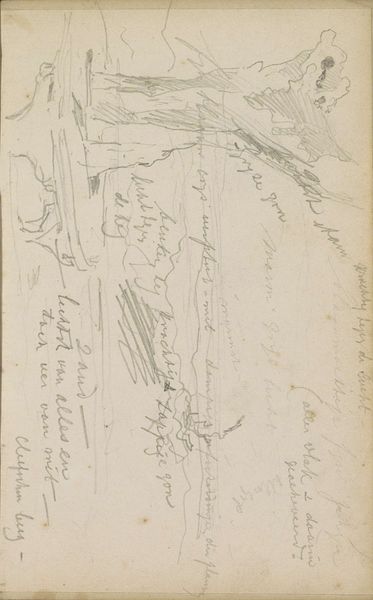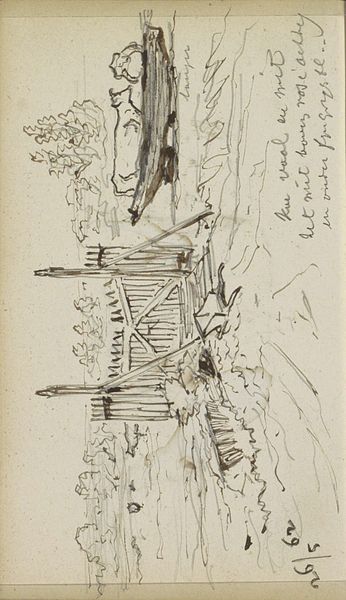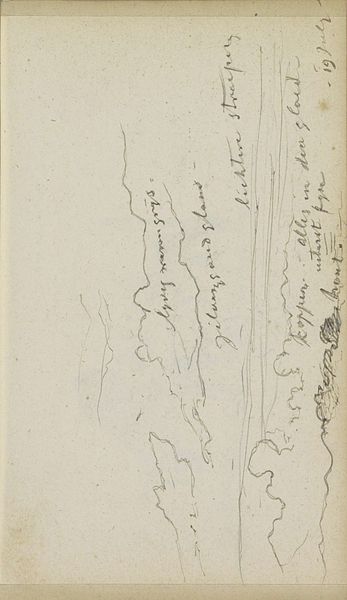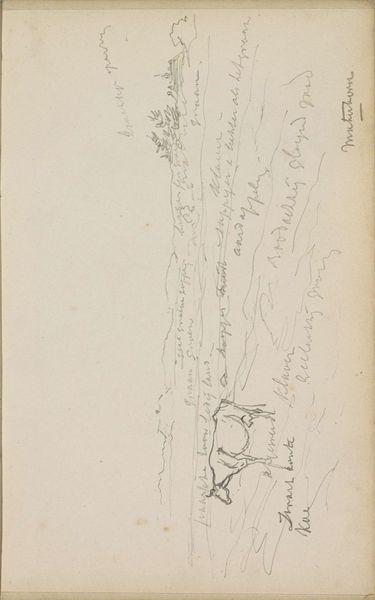
drawing, plein-air, ink
#
drawing
#
dutch-golden-age
#
plein-air
#
landscape
#
ink
#
watercolor
Copyright: Rijks Museum: Open Domain
This quick sketch, now in the Rijksmuseum, was made by Johannes Tavenraat in the 19th century, with pen and brown ink over graphite. Tavenraat used the materials to their full potential. Look closely at the way the diluted ink and fine lines vividly depict the landscape with a windmill, a barn, and tents. The fluidity of the ink allows for a sense of atmospheric perspective, capturing the soft light and expansive sky. This wasn't just a study of form; it was about recording the Dutch landscape, in a country where windmills were essential to land management and water control, but also symbols of industriousness. The directness of the sketch suggests that Tavenraat was interested in capturing the immediate experience of the scene, the fleeting effects of light, and weather on the land. By focusing on his material, technique, and the cultural significance of the subject matter, we can better appreciate Tavenraat’s artistic vision. It's a reminder that the materials and processes used in art are as important as the subject matter itself.
Comments
No comments
Be the first to comment and join the conversation on the ultimate creative platform.
